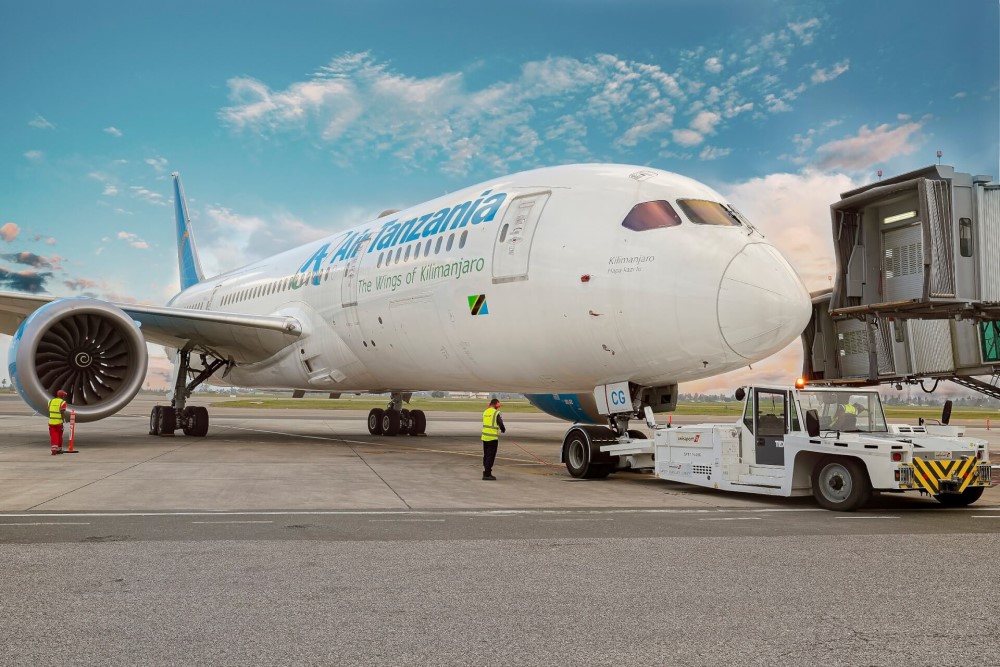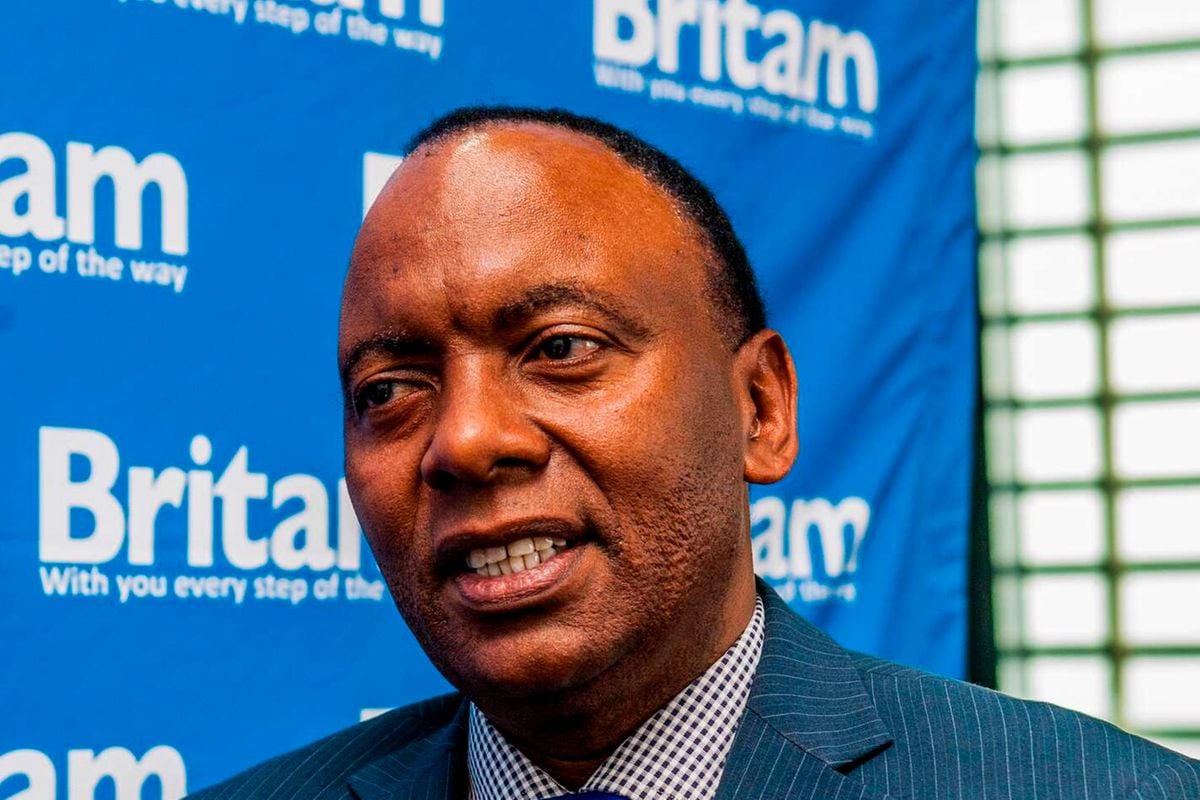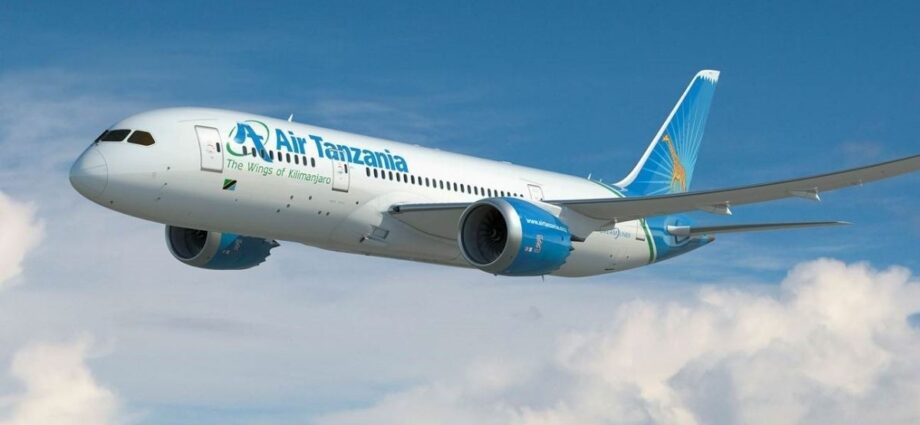Recently, there have been frustrations among travellers who complain about frequent flight cancellations and delays as some planes remain grounded for maintenance.
The national carrier, which flies to 24 destinations, including 14 domestic routes, from its Dar es Salaam hub, has repeatedly apologised to its customers while putting the blame for the problem on the shortage of aircraft that interrupted its normal operations.
An Air Tanzania Airbus was recently impounded in Sweden, as part of a international court ruling as compensation awarded against the Tanzania Government in favour of a Swedish investor.
See Story: Seized Air Tanzania plane grounded in dispute with Swedish investor

Apart from the impounding of Air Tanzanian aircraft the fleet shortage was also attributed to the fact that three of its four Airbus A220 twin-jet aircraft were grounded last month following a technical issue with their Pratt and Whitney engines.
The airline’s managing director and CEO, Mr Ladislaus Matindi said one of the three grounded Airbus A220-300 is set to be back in the skies next week.
“We will consider leasing if this does not address the challenge of the increasing demand,” he said, adding, “We will make an evaluation to make a decision.”
He revealed that the airline received the spare engine from the manufacturer on Thursday.
“Engine installation and testing will take four to five days,” revealed Mr Matindi, while adding that the task was being done by local experts.
Because the other engine is in good condition, this aircraft only required one spare engine. The aircraft’s engine, which is out of order, according to Mr Matindi, had already been taken to a maintenance facility located in Frankfurt, Germany.
On the other two grounded planes, Mr Matindi said all four engines were expected to be taken to the same maintenance facility this month.
“We are pushing for the maintenance slot allocation. We are optimistic that we will have it before the end of this month,” he underscored.
It is understood that there are 250 Airbus A220-300s globally, with the majority said to have been grounded due to problems with the engines.
Tanzania Civil Aviation Authority Consumer Consultative Council (TCAA CCC) Executive Secretary Innocent Kyara commended ATCL’s plans, saying leasing of the aircraft was a good short-term measure to take.
However, he believes that, in the long run, with the national carrier serving as the country’s pride, having its own assets is the way to go.” However, we can add only three more aircraft, one of which is for cargo. From there, we can consider leasing, if the market expands even further in the future,” said Mr Kyara.
ATCL, which currently has 11 aircraft in its fleet, is expected to receive five more aircraft, one of which will be for cargo, by next year to bring the total number of aircraft in its fleet to 16.
Share this news
This Year’s Most Read News Stories

CCM ready to task state organs on Zanzibar Airport deal
Ruling party Chama Cha Mapinduzi-Zanzibar has said it is ready to task state organs to investigate some of the claims against its government that have been raised by opposition politicians on the Abeid Amani Karume International Airport (AAKIA).Continue Reading

Britam half-year net profit hits Sh2bn on higher investment income

Insurer and financial services provider Britam posted a 22.5 percent jump in net earnings for the half-year ended June 2024, to Sh2 billion, buoyed by increased investment income.
The rise in half-year net profit from Sh1.64 billion posted in a similar period last year came on the back of net investment income rising 2.5 times to Sh13.27 billion from Sh5.3 billion.
“We are confident in the growth and performance trend that Britam has achieved, supported by its subsidiaries in Kenya and the region. Our business is expanding its revenue base while effectively managing costs,” Britam Chief Executive Officer Tom Gitogo said.
“Our customer-centric approach is fueling growth in our customer base and product uptake, particularly through micro-insurance, partnerships, and digital channels.”
The investment income growth was fueled by interest and dividend income rising 34 percent to Sh9.1 billion, which the insurer attributed to growth in revenue and the gains from the realignment of the group’s investment portfolio.
Britam also booked a Sh3.79 billion gain on financial assets at a fair value, compared with a Sh1.8 billion loss posted in a similar period last year.
The increased investment income helped offset the 12.7 percent decline in net insurance service result to Sh2.13 billion in the wake of claims paid out rising at a faster pace than that of premiums received.
Britam said insurance revenue, which is money from written premiums, increased to Sh17.8 billion from Sh16.6 billion, primarily driven by growth in the Kenya insurance business and regional general insurance businesses, which contributed 30 percent of the revenue.
The group has a presence in seven countries in Africa namely Kenya, Uganda, Tanzania, Rwanda, South Sudan, Mozambique, and Malawi.
Britam’s insurance service expense hit Sh13.6 billion from Sh11.3 billion, while net insurance finance expenses rose 2.6 times to Sh12.3 billion during the same period.
“Net insurance finance expenses increased mainly due to growth in interest cost for the deposit administration business driven by better investment performance. This has also been impacted by a decline in the yield curve, which has led to an increase in the insurance contract liabilities. The increase has been offset by a matching increase in fair value gain on assets,” said Britam.
Britam’s growth in profit is in line with that of other Nairobi Securities Exchange-listed insurers, which have seen a rise in profits.
Jubilee Holdings net profit in the six months increased by 22.7 percent to Sh2.5 billion on increased income from insurance, helping the insurer maintain Sh2 per share interim dividend.
CIC Insurance Group posted a 0.64 percent rise in net profit to Sh709.99 million in the same period as net earnings of Liberty Kenya nearly tripled to Sh632 million from Sh213 million, while Sanlam Kenya emerged from a loss to post a Sh282.2 million net profit.

Tanzania readying to talk to British developer over Zanzibar land lease revocation
Dar es Salaam. British firm Pennyroyal Limited has said it will sue the Tanzanian government over leasehold revocation in Zanzibar, but the Attorney General has confirmed that they are preparing to meet with the investor.Continue Reading











